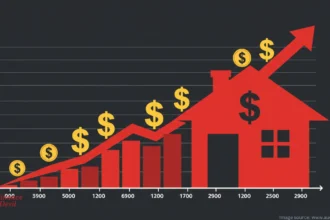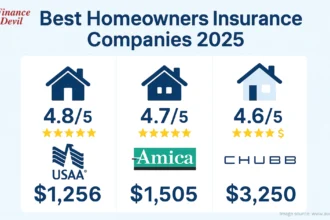If you’re grappling with the daunting prospect of facing a lawsuit for your credit card debt, rest assured that you’re not alone. It’s crucial to understand that while missing credit card payments can negatively impact your credit score and lead to increased interest rates, a lawsuit is often the last resort for creditors. In this comprehensive guide, we’ll delve into what you should do when you find yourself in this challenging situation and provide valuable insights on resolving Credit Card Debt Lawsuits before it escalates to the courtroom.
Quick Overview:
Dealing with credit card debt lawsuits can be a stressful and challenging experience. When you receive a court summons, it’s essential to take immediate action. In this guide, we’ve discussed the key steps to help you navigate this situation successfully:
- Understanding the Court Summons: Learn what a credit card debt court summons entails, including the plaintiff’s information, the amount in question, the court hearing date, and instructions for responding.
- Responding Wisely: Avoid ignoring the summons, verify the debt’s validity, and consider debt settlement. Seek legal counsel for expert guidance.
- Settling Debt Before Court: Discover the steps to settle your credit card debt without going to court, including assessing your budget, negotiating a payment plan, and making lump-sum payments.
- Handling Errors and Scams: Understand what to do if the debt is not yours and how to protect your rights as a debtor.
- Debunking Myths: Know that you cannot go to jail for unpaid credit card debt and that creditors have legal recourse without resorting to imprisonment.
- Regaining Control: Consider various options, from debt management plans to consolidation, negotiation with your lender, and bankruptcy as a last resort.
READ ALSO: Navigating Credit Cards with Bad Credit
Understanding a Credit Card Debt Court Summons
A court summons for credit card debt is a formal notification that you’re being sued by a creditor or debt collector. The specifics of the lawsuit may vary depending on your state of residence. When a lawsuit is filed in civil court, you’ll receive a summons that typically includes the following information:
- The plaintiff who is taking legal action against you.
- The total amount of money they aim to collect.
- The date of the court hearing.
- Instructions on how to file a formal response.
Responding to a Court Summons for Credit Card Debt
Receiving a court summons can be anxiety-inducing, but it’s essential to stay composed. Knowing how to navigate the situation can help you manage stress and potentially reach a favorable resolution. Here’s how to respond when you’re sued for credit card debt:
- Don’t Ignore the Summons: Ignoring a court summons is never a wise choice. Take the time to read it thoroughly, as you usually have 20 to 30 days to formulate your response. Neglecting the summons may result in a judgment in favor of the debt collector, potentially leading to wage garnishment.
- Verify the Debt: Your first step when sued for credit card debt is to confirm that the debt is indeed yours. The Fair Debt Collection Practices Act mandates that debt collectors provide a validation letter with specific details about the debt within five days of initial communication. If you have doubts about the debt’s validity, you can request additional information, such as the name of the original creditor or confirmation that the statute of limitations hasn’t expired.
- Consider Debt Settlement: If you believe the debt is legitimate and the statute of limitations hasn’t expired, exploring debt settlement is a prudent choice. Many debt collectors are open to negotiating a settlement plan, which can be a more efficient and cost-effective alternative to going to court.
- Seek Legal Counsel: Regardless of whether you intend to pay off the debt or challenge it, consulting an attorney is advisable. A competent lawyer can help you negotiate a fair settlement or guide you on how to contest the debt collector’s claims in court. Many attorneys offer free consultations, which can be especially valuable during times of financial strain.
Settling Credit Card Debt Before the Courtroom
When facing a lawsuit over old credit card debt, opting for debt settlement is often a wise decision. Here’s a step-by-step guide to settling your credit card debt before it reaches the courtroom:
- Assess Your Budget: Start by evaluating your budget to determine how much you can allocate toward debt repayment each month. Consider whether you can make a lump-sum payment from your emergency fund or other savings goals to expedite the process.
- Request a Payment Plan: Another option for debt settlement is negotiating a payment plan. This allows you to repay the debt gradually, converting it into a manageable monthly expense.
- Make a Lump-Sum Payment: Debt collectors may agree to a lump-sum settlement for an amount lower than the total debt owed. If you have sufficient savings to make a substantial payment, this can be an attractive option to swiftly resolve the debt.
READ ALSO: What Makes a Credit Card Ideal for Someone with Bad Credit
What to Do If It’s Not Your Debt
In the world of debt collection, errors and scams are not uncommon. By the time a debt culminates in a court summons, it may have passed through multiple collection agencies, increasing the likelihood of mistakes. The debt could belong to someone with a similar name or result from identity theft. If a debt verification letter doesn’t clarify the situation, seeking legal assistance may be necessary. Winning a court case often results in the debt collector covering your legal fees.
Can You Go to Jail for Credit Card Debt?
Contrary to what some may claim, jail time is not a typical consequence of unpaid credit card debt. While debt collectors may threaten arrest to pressure you into payment, this practice is both deceptive and illegal. Debtors’ prisons, once a common form of debt punishment in the United States, were officially abolished in 1833. To further protect consumers, the Fair Debt Collection Practices Act (FDCPA) was enacted in 1977, explicitly prohibiting threats of jail time for credit card debt.
Legal Recourse for Creditors
Although debt collectors cannot have you arrested for unpaid credit card debt, they can resort to legal measures to recover their funds. One common approach is suing you for payment. It’s vital not to ignore such lawsuits, as failing to respond or appear in court can result in a default judgment against you. This judgment allows creditors to garnish your wages or seize your assets to satisfy the debt. Hiring an attorney to represent you can be beneficial, as they can potentially have your case dismissed or settled for a reduced amount.
In rare cases, creditors may seek to have you arrested for noncompliance with court orders, which could lead to incarceration. However, this would be for failing to adhere to the court’s directives, not for the underlying debt itself.
Regaining Control of Your Credit Card Debt
The best strategy for avoiding debt collectors and legal complications is to proactively address your credit card debt. Consider the following options:
- Develop a Debt Management Plan: Engage a credit counselor to assess your financial situation and negotiate a debt management plan with your creditors. This plan consolidates your payments into a single monthly installment, making it more manageable.
- Consolidate Your Debt: Consolidating your credit card debt can reduce interest rates and provide a more feasible monthly payment. This is especially helpful if you have substantial balances across multiple cards.
- Negotiate with Your Lender: Directly discussing your situation with your lender can result in lowered interest rates, adjusted payment terms, and a reduced overall debt amount. Many creditors prefer to receive partial payment rather than nothing at all.
- Consider Bankruptcy as a Last Resort: Bankruptcy should only be considered as a last resort. Chapter 7 cancels your credit card debt but may require selling assets to repay creditors. Chapter 13 restructures and renegotiates the debt for a period of three to five years. Bankruptcy significantly affects your credit for several years, so it should be a final option for escaping credit card debt.
In conclusion, navigating credit card debt and legal challenges can be overwhelming, but there are viable solutions available. By taking proactive steps to address your debt, you can mitigate the risk of court involvement and find a path to financial recovery. Remember, you have rights as a debtor, and understanding them is the first step toward regaining control of your financial well-being.
Facing a credit card debt lawsuit is a challenging situation, but it’s essential to approach it with knowledge and a well-thought-out strategy. By taking proactive steps, understanding your rights, and seeking professional advice when needed, you can effectively manage and resolve credit card debt issues, ultimately regaining control of your financial well-being. Remember, you have options, and with the right approach, you can find a path to success and financial stability.
FAQs:
Can creditors have you arrested for unpaid credit card debt?
No, creditors cannot have you arrested for unpaid credit card debt. It’s important to understand that while debt collectors may use intimidating tactics and threaten arrest, this practice is both deceptive and illegal. In fact, debtors’ prisons, which were once used for debt punishment in the United States, were officially abolished in 1833. To provide further protection to consumers, the Fair Debt Collection Practices Act (FDCPA) was enacted in 1977, explicitly prohibiting threats of jail time for unpaid credit card debt.
How can I verify if the debt is mine?
If you have doubts about the validity of the debt in question, you can take specific steps to verify its authenticity. The Fair Debt Collection Practices Act requires debt collectors to provide a validation letter within five days of their initial communication. This letter should contain detailed information about the debt, including the name of the original creditor and the amount owed. To confirm whether the debt is indeed yours, request this validation letter from the debt collector. If you still have concerns or believe there may be a mistake, it’s advisable to seek legal assistance. An attorney can help you navigate the situation and ensure your rights are protected.
What should I do if I receive a court summons?
Receiving a court summons for credit card debt can be unsettling, but it’s crucial to respond in a responsible and timely manner. Here’s a step-by-step approach:
- Do not ignore the summons: Ignoring the court summons is not advisable. Read it carefully and take note of the deadline for your response, typically 20 to 30 days.
- Verify the debt: Ensure that the debt is, in fact, yours. Request a validation letter from the debt collector for detailed information about the debt. If you have concerns about the debt’s validity, consult with an attorney.
- Consider debt settlement: If you believe the debt is legitimate and the statute of limitations hasn’t expired, explore the option of debt settlement. Many debt collectors are open to negotiating a settlement plan that can be a more efficient and cost-effective alternative to going to court.
- Seek legal counsel: Regardless of whether you decide to pay off the debt or dispute it, consulting with an attorney is a wise decision. An experienced attorney can help you negotiate a fair settlement or guide you through contesting the debt collector’s claims in court. Many attorneys offer free consultations, which can be especially valuable during times of financial strain.
Is bankruptcy a good option for credit card debt?
Bankruptcy should be considered as a last resort when dealing with credit card debt. There are two primary types of bankruptcy: Chapter 7 and Chapter 13.
- Chapter 7: This form of bankruptcy cancels your credit card debt but may require you to sell assets to repay creditors. It can have a significant impact on your credit for several years and should only be considered when all other options have been exhausted.
- Chapter 13: Chapter 13 bankruptcy involves restructuring and renegotiating your debt over a period of three to five years. While it can provide some relief, it also affects your credit and should be a final option for escaping credit card debt.
Before considering bankruptcy, it’s advisable to explore other debt management options, such as debt consolidation, negotiation with your lender, and debt management plans. These alternatives can often help you regain control of your finances without the long-term consequences of bankruptcy.
How can I proactively manage my credit card debt?
Proactively managing your credit card debt is essential for avoiding legal complications and regaining control of your financial well-being. Here are some steps you can take:
- Develop a Debt Management Plan: Engage a credit counselor to assess your financial situation and negotiate a debt management plan with your creditors. This plan consolidates your payments into a single monthly installment, making it more manageable.
- Consolidate Your Debt: Consider consolidating your credit card debt, which can lead to lower interest rates and a more manageable monthly payment, especially if you have substantial balances across multiple cards.
- Negotiate with Your Lender: Discuss your situation directly with your lender. Often, lenders are willing to lower interest rates, adjust payment terms, or even accept a reduced overall debt amount. Many creditors prefer to receive partial payment rather than nothing at all.
By proactively addressing your credit card debt and considering these options, you can mitigate the risk of legal complications and find a path to financial recovery while protecting your rights as a debtor.
In other related article, 10 Best Credit Cards for People with Bad Credit





